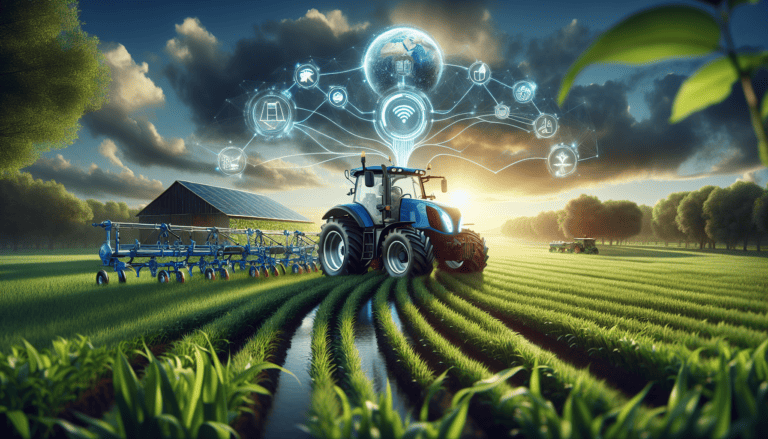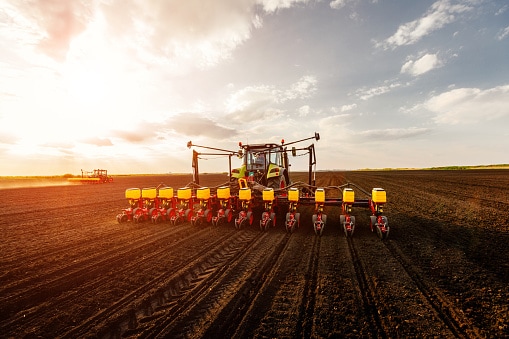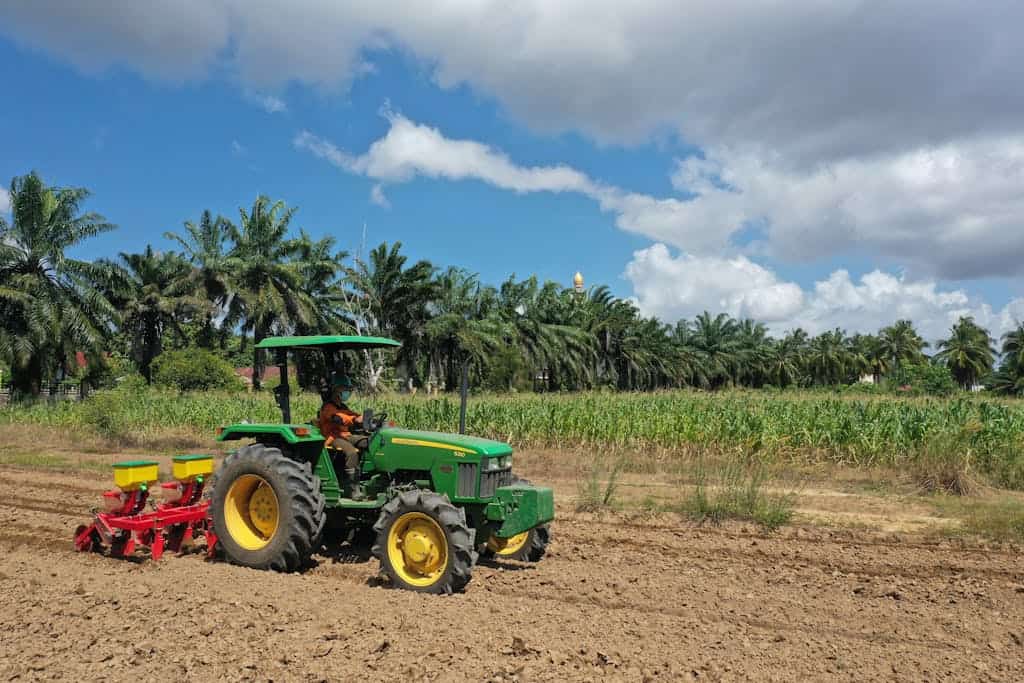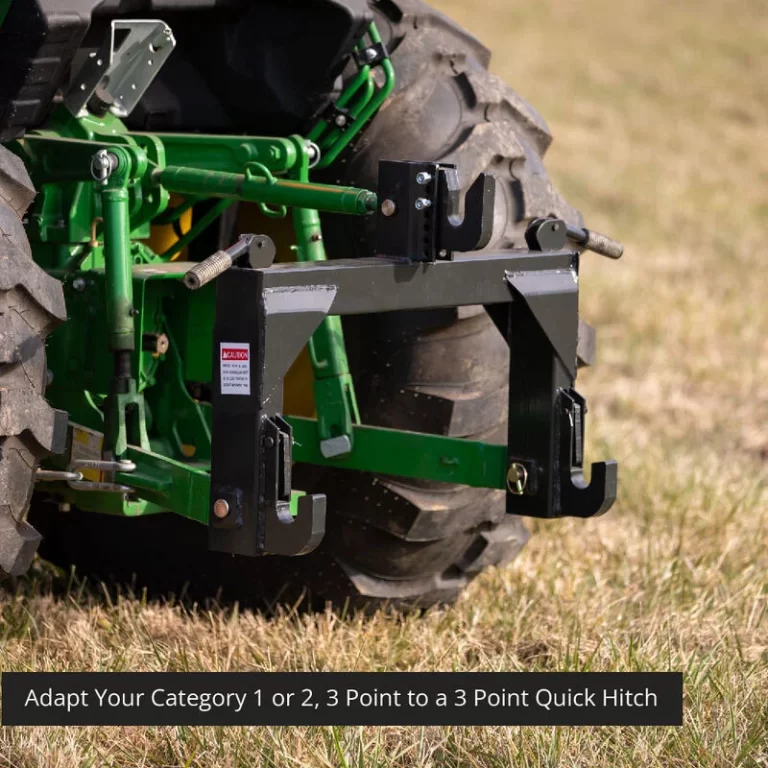Decoding Tractor Prices: How Much Does a Tractor Cost in Today’s Market?
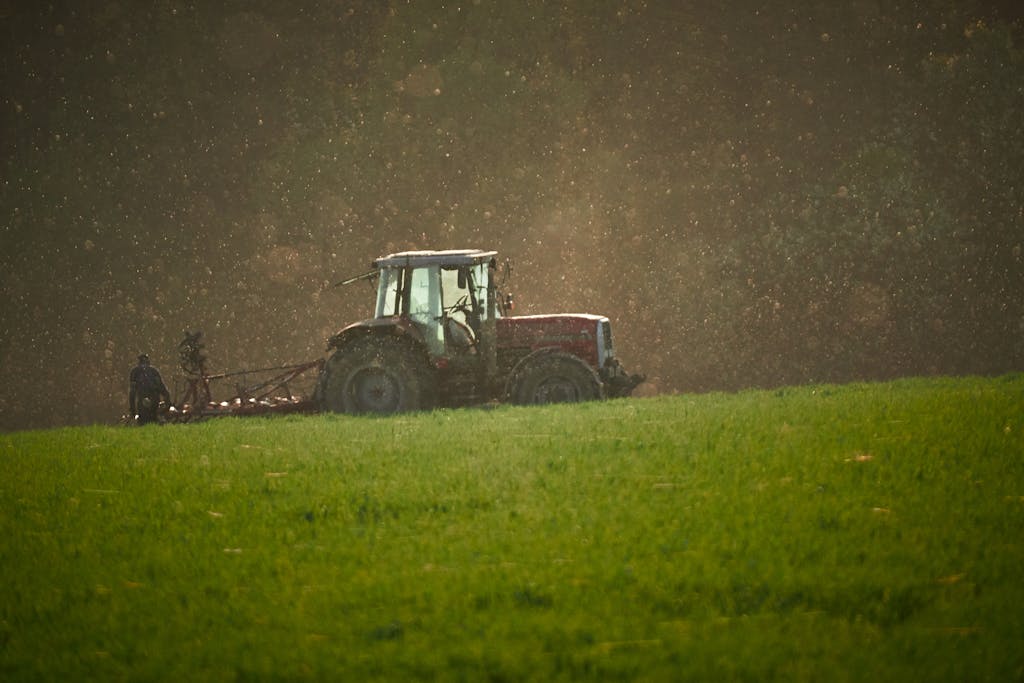
If you’re in the market for a tractor, you’re probably wondering, ‘How much does a tractor cost?’ The answer is not straightforward as prices can vary widely. In this article, we’ll explore the numerous factors that influence tractor prices, from types of tractors, brand and horsepower, features, and new versus used models. You can expect compact tractors to start at around $9,000, with high-end, advanced models reaching upwards of $200,000. We will leave out lawn tractors but you can review in our lawn tractor guide. Read on as we delve into what contributes to the wide range of costs, ensuring you’re well-informed about your tractor investment.
Key Takeaways
- The cost of a tractor varies based on brand reputation, size, horsepower, and custom features, with prices ranging broadly from $9,000 for compact models to over $200,000 for advanced machinery.
- You can opt for buying new or used tractors, where new tractors offer the latest features and warranties but at a higher cost, while used tractors are more wallet-friendly but come with potential unknown repair needs.
- Aside from the purchase price, consider additional costs like attachments, which can expand a tractor’s functionality, as well as ongoing maintenance, operating expenses, and options for financing or renting based on your usage needs.
Tractor Price Factors: What Affects the Cost?
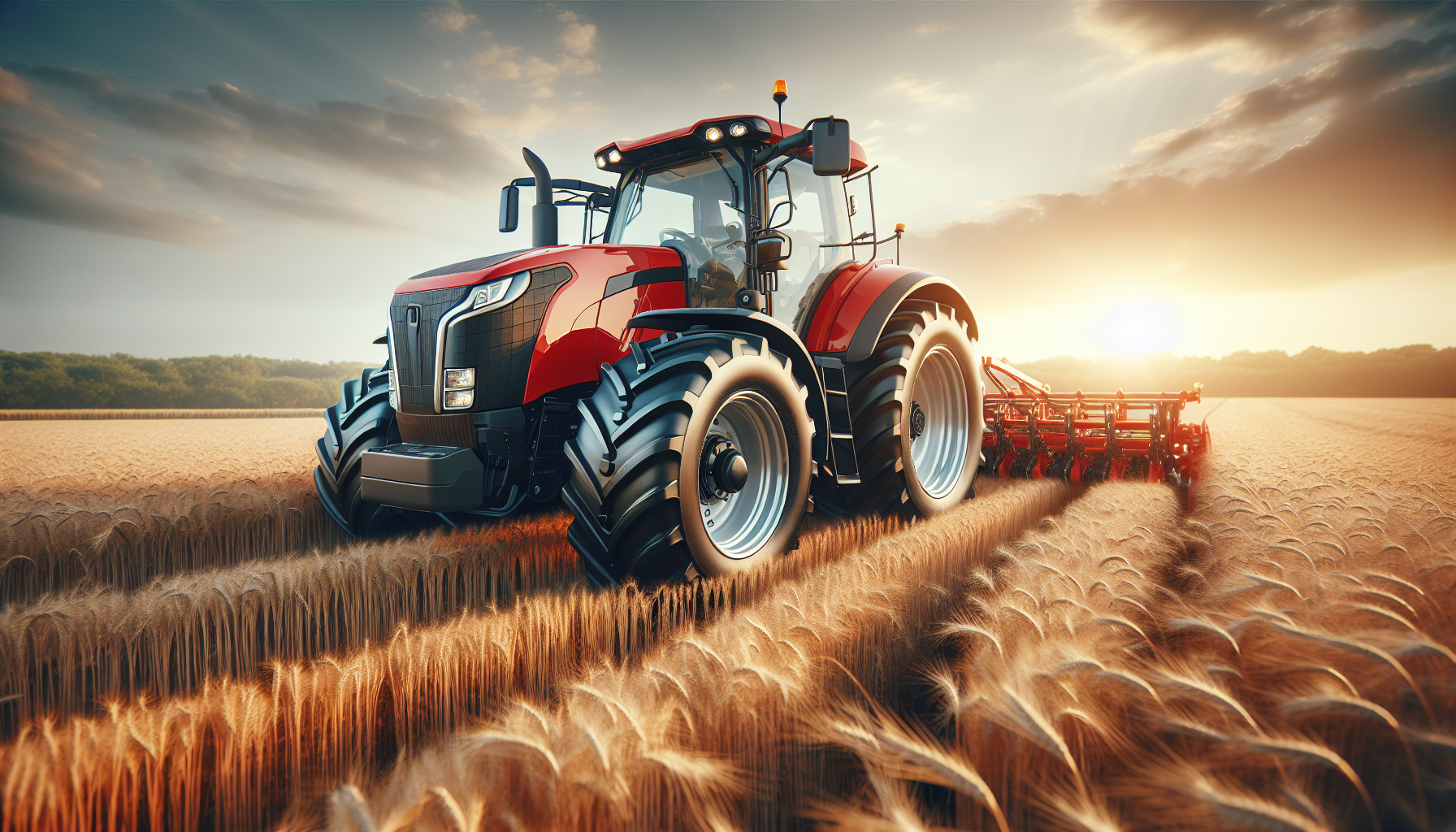
The expense involved in purchasing a tractor isn’t simply about selecting a model and settling the payment. Several elements contribute to shaping the overall cost, making it as variable as that between an upscale automobile and a second-hand small car. These factors collectively influence what you’ll ultimately see on the price tag of the tractor.
Key considerations include the manufacturer’s brand prestige, the physical dimensions of the tractor, its horsepower capacity, and any supplementary features it may possess. Let’s delve into these aspects more deeply for clarity.
Brand Impact on Pricing
Loyalty to a brand isn’t limited to casual footwear or high-tech gadgets. It plays an essential role in the tractor market as well. Renowned tractor brands that consistently deliver dependability and quality are able to set higher price points. But this pricing doesn’t merely reflect the branding itself. Top-tier farm tractor manufacturers often provide cutting-edge features, superior dealer service, and lengthy warranties, which enhance their value proposition and justify their steeper prices.
One could consider choosing a less prominent, more affordable farm tractor brand, but farmers place immense trust in these machines—they are central to their income generation after all—and they tend not only willing but prepared to invest more for trustworthy brands with which they’ve had satisfactory experiences previously. Keep in mind that purchasing a farm tractor is no trivial expense. It’s an investment of substantial proportions with far-reaching implications on both productivity and financial returns.
Size and Horsepower Considerations
The relationship between the tractor’s size and horsepower is a key factor in determining its price. What does that mean when it comes to actual costs?
For light-duty activities, if one opts for a compact tractor, they would Expect an outlay ranging from $9,000 to $12,000. For those with mid-sized agricultural needs or large homesteads requiring more power, tractors suited for such applications tend to require a financial commitment within the span of $25,000 to $50,000.
On the higher end of scale and strength are larger tractors boasting over 100 HP under their hoods – these machines don’t come cheaply. Priced anywhere from $50,000 up to a hefty sum of around $80,000. They offer advanced technology and ample muscle designed specifically for strenuous farming operations that involve hauling substantial loads and performing intense heavy duty tasks.
Features and Add-ons
In the realm of modern agriculture, tractors go beyond being simple machinery with their advanced functionalities that include GPS navigation and soil scanning capabilities. These sophisticated additions improve both farming productivity and financial returns yet simultaneously contribute to the increased cost associated with acquiring a tractor.
Technological advancements aren’t the only aspect inflating expenses. Comfort features also play a role. Ample time spent operating a tractor is made more bearable with ergonomic designs and padded seating solutions—luxuries that Elevate overall costs. Environmentally friendly models adhering to EPA. Tier 4 regulations demand higher prices due to their complex manufacturing process. Thus, considering what you receive in return for your investment is crucial when assessing the value behind a tractor’s price tag.
New vs. Used Tractors: Cost Comparison
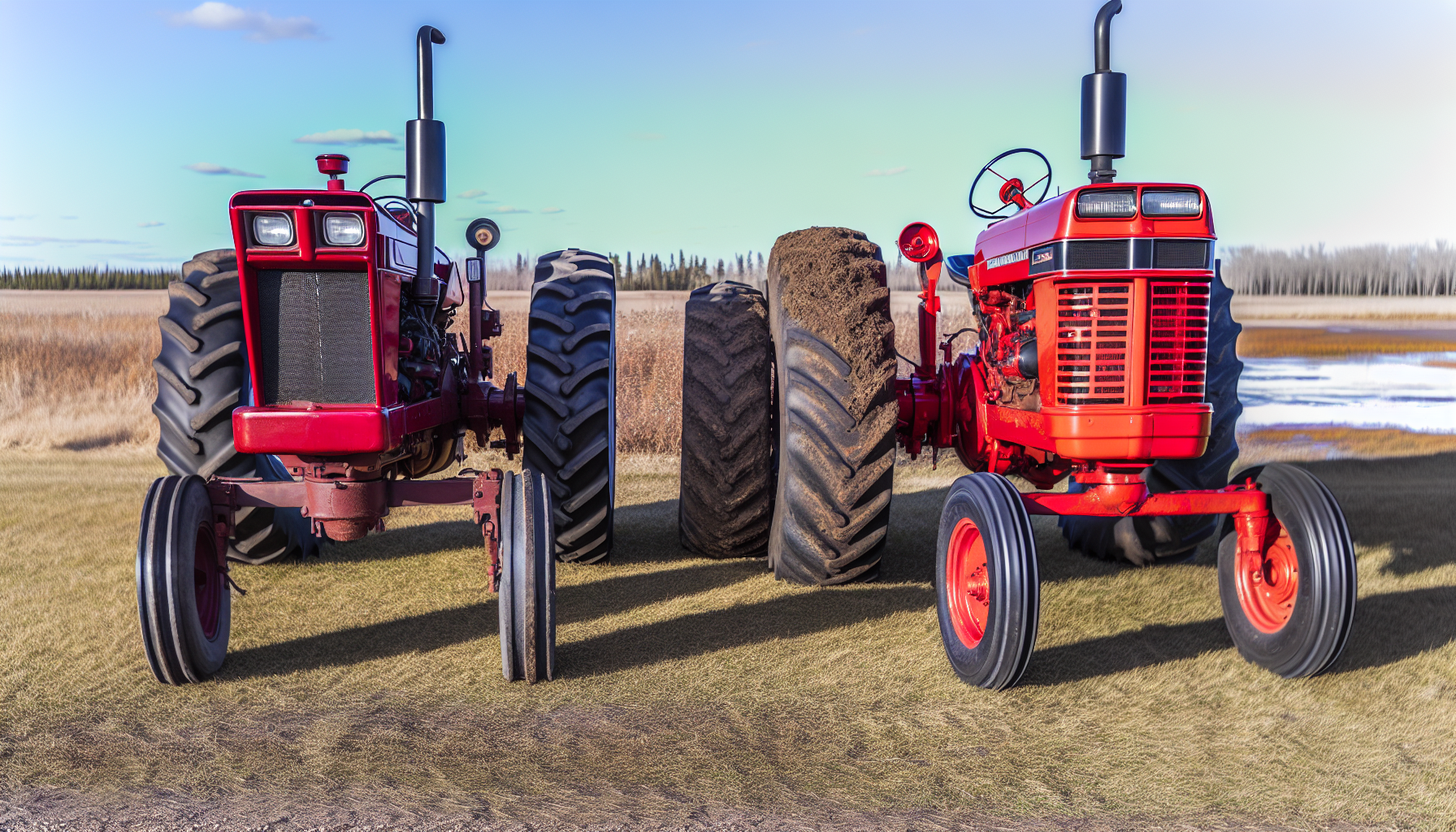
Having explored the variables affecting tractor expenses, we’re now poised to tackle the perennial dilemma: is it wiser to invest in a new or pre-owned tractor? Your decision should hinge upon various considerations such as financial constraints, specific agricultural needs, and desired assurances.
Opting for a brand-new tractor provides access to cutting-edge technology along with warranty security that minimizes risks of unplanned mechanical failures. On the other hand, choosing a secondhand but well-kept farm tractor can be more economical. Prices span from around $3,000 for compact models up to $75,000+ for heftier farming units. Yet procurement cost isn’t everything—the value of a used machine also varies according to its service records, operational hours accrued and any extra equipment it comes bundled with.
Pros and Cons of Buying New
Purchasing a new tractor provides a comforting certainty, as it arrives without any history of problems, ensuring mental comfort. Typically more reliable than pre-owned models, new tractors tend to require less upkeep and minimize the chances of unforeseen operational interruptions. Owning a new tractor allows for personalization that matches your exact requirements—a level of customization often unattainable with second-hand versions.
On the flip side, this confidence in performance and adaptability is accompanied by an elevated upfront expense which can be daunting for purchasers operating within limited financial margins. If such a tractor isn’t fully utilized, its high cost may not equate to a commensurate value, making it an imprudent fiscal choice.
Pros and Cons of Buying Used
On the flip side, used tractors offer a lower initial purchase price, making them a viable option for budget-conscious buyers. The benefits of buying a used tractor include:
- Significant savings due to depreciation
- Lower prices for well-maintained machines
- Broader selection of used tractors on the market
- Ability to find units that fulfill your specific needs without breaking the bank.
However, the potential downsides to purchasing a used tractor include:
- The occurrence of maintenance issues, which can introduce unexpected costs
- The unknown history of a used tractor could hide issues that may require significant and costly repairs down the line
- While the simpler mechanics of many used tractors can benefit individuals with mechanical aptitude, remember that maintenance costs are generally higher for used tractors.
Popular Tractor Brands and Their Costs
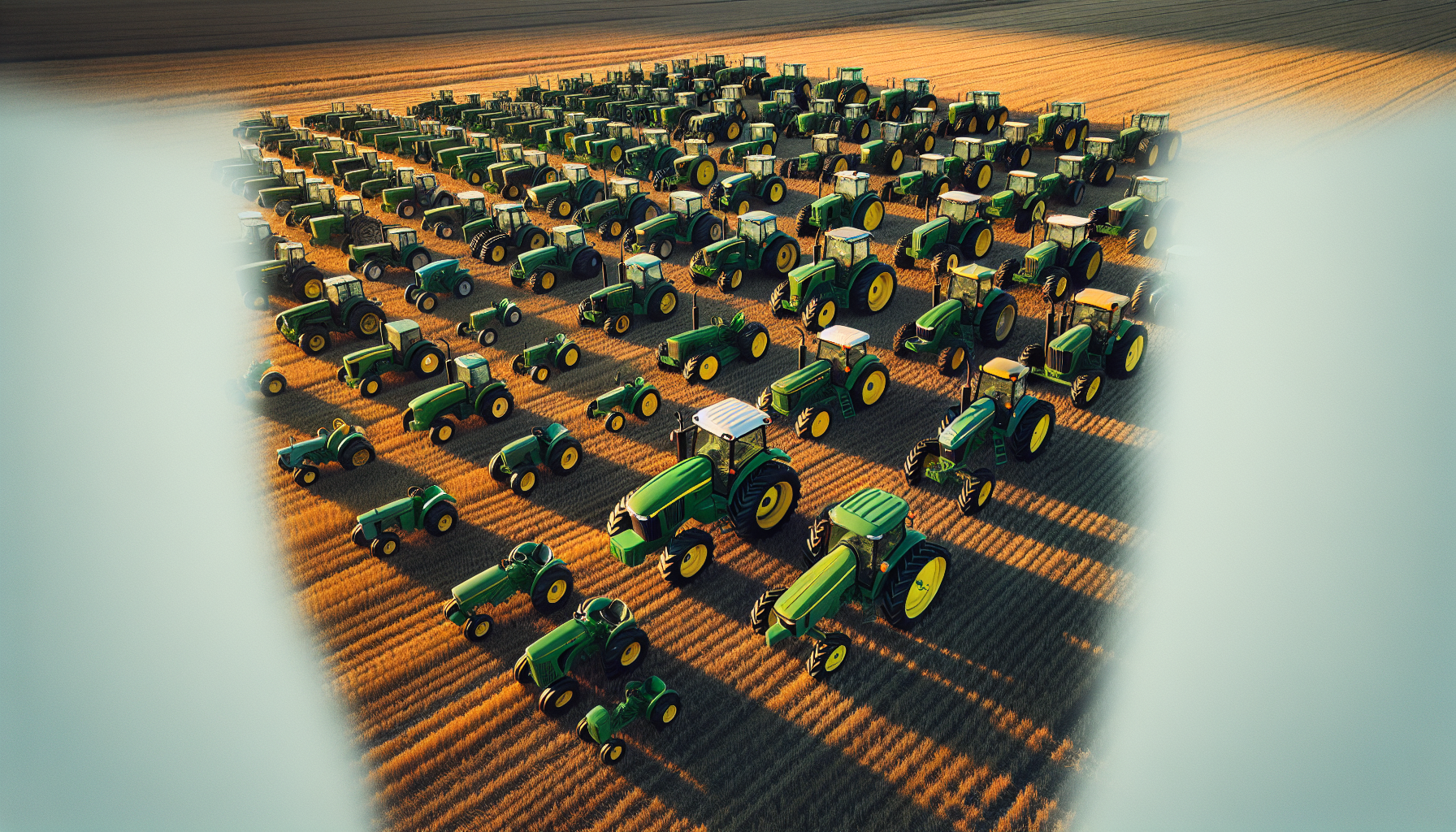
Regarding tractor brands, some of the prominent names are:
- John Deere
- Case IH
- Massey Ferguson
- New Holland
- Kubota
Among these, John Deere tractors stand out as a favored choice for farm work and come in various models suitable for different agricultural tasks. These include four wheel drive options and utility tractors. The lineup ranges from compact utility to more robust models with diverse price points depending on their size and power capabilities. You’ll find a broad spectrum of these machines at tractor dealerships.
For example, prices for new John Deere compact tractors begin at around $20,000 but can go well over $200,000 when you’re dealing with high-horsepower units meant for heavy-duty operations. A fresh Kubota compact model may set you back approximately $15,000 instead. When it comes to horsepower classifications, 50 HP variants fall between $30k-$60k. Mid-range (25–80 HP) could cost somewhere between$22k–$47.9k. While larger implements that provide 100 HP coupled with four-wheel-drive typically range from about $53k to nearly under $70k.
Should your preferences lean towards top-tier machinery like the Case IH Steiger Quadtrac 620, then prepare yourself financially—it packs quite the punch not only in terms of its formidable 620 horsepower motor but also due to an enhanced emissions system plus an interior designed both spacious and comfortable.
Tractor Attachments and Their Costs
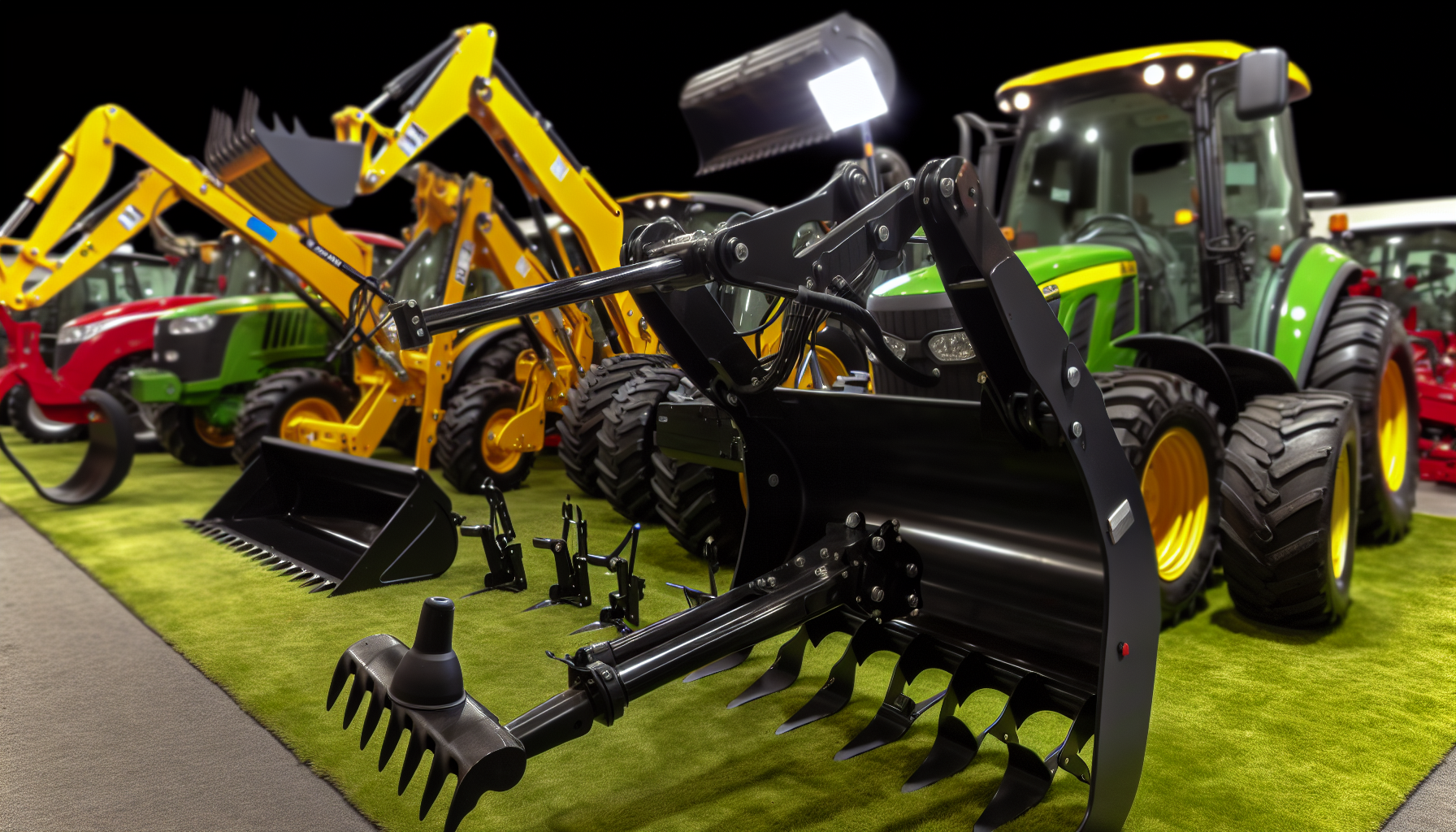
The array of attachments available for tractors can greatly enhance the machine’s versatility, allowing it to perform a wide range of tasks. The prices for these implements begin at an affordable level, with some starting in the low hundreds.
As an example, you could acquire a Model 70 PHD 3 Point Post Hole Digger with Augers for as little as $169 or opt for Clamp-on Pallet Forks priced at $848.99. For more demanding workloads, there are options like the 36” Log Splitter and Rake Grapple, which come with heftier price tags—$4,298.99 and upwards of $4,859.98 respectively. Whether your needs involve simple gardening projects or managing substantial agricultural properties, you’ll find tractor attachments suited to every requirement across a broad pricing spectrum.
Financing Options for Tractor Purchases
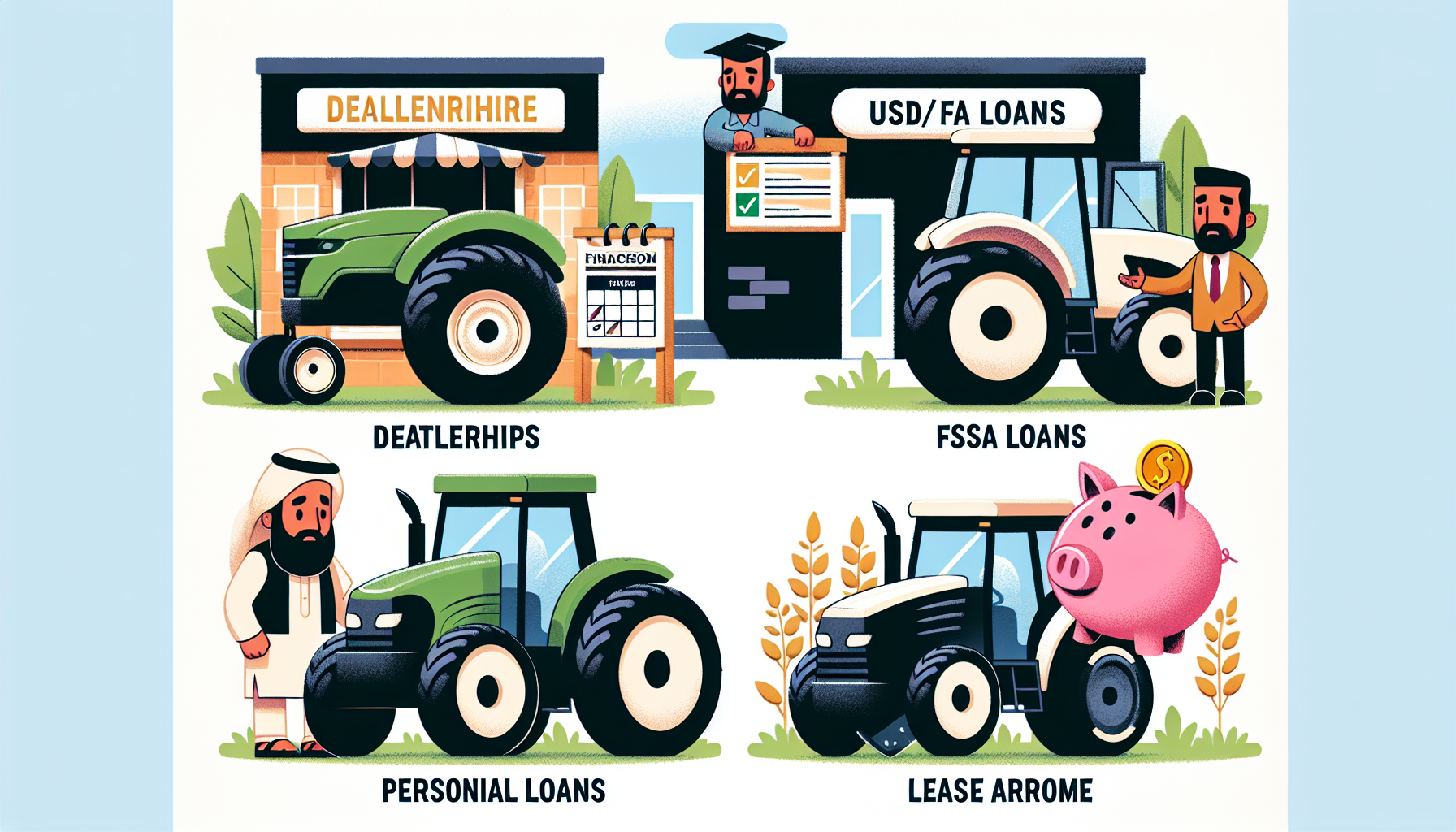
Understanding your financing alternatives is essential if you’re in the market for a tractor. As we explore these options, it’s important to bear in mind that they can significantly affect your decision-making process.
Your options for financing a tractor purchase encompass several avenues such as:
- Dealer-provided financial services
- Tractor loans from USDA/FSA programs
- Securing personal loans
- Entering into leasing agreements
These various financial mechanisms not only come with competitive interest rates, but also offer flexibility in structure to mesh well with your agricultural production timelines and cash flow situations. Prior to committing, securing prequalification for tractor financing is beneficial—allowing insight into expected loan conditions and monthly installment plans.
Maintenance and Operating Costs
Ownership of a tractor extends beyond the initial price tag. Maintenance and operational expenses must be factored in, as they considerably affect your total investment.
Diesel-powered tractors typically excel in fuel efficiency when compared to their gasoline counterparts. Although basic mechanic knowledge may suffice for routine maintenance, certain repairs might necessitate the expertise of an agriculture-specific mechanic. The costs associated with annual upkeep and potential repairs fluctuate depending on how much the tractor is used.
When assessing your financial commitment to owning a tractor, consider these additional costs:
- Depreciation
- Interest payments
- Insurance premiums
- Storage or housing
These ownership-related expenses can cumulatively amount to approximately 1% of what you paid for the tractor originally. Henceforth, it’s important not only to account for direct operating expenditures such as fuel and repair works, but also indirect ownership costs that include depreciation, interest on loans taken out for its purchase, insurance coverage fees among others.
Renting vs. Buying a Tractor: Which is Right for You?
Delving into the topic of tractor acquisition, we’ve already explored purchasing options. Yet, when considering renting a tractor, your choice should be influenced by multiple variables such as your budgetary constraints, how often you intend to use the equipment and for what duration each task is projected to last.
Opting for a rented tractor may offer flexibility that’s perfect for one-off tasks or sporadic usage—this prevents long-term financial commitment while also minimizing concerns related to maintenance during inactive periods and storage issues when it’s not in use. Nevertheless, if you choose longer rental durations, there could be an expectation for the lessee to handle upkeep duties along with possibly needing to put down an insurance deposit. Typical daily rates can fall between $200 and $400, which might accumulate substantially over extended periods.
Ultimately, consider rentals as economically viable solutions tailored towards short-lived requirements. On the other hand, investing in ownership potentially paves a path towards better value, especially with frequent utilization envisaged.
Tips for Finding the Best Tractor Deals
To secure the most advantageous tractor deals, it’s essential to engage in thorough research that encompasses price comparison and exploring various tractor packages within your financial plan.
Keep in mind, the cost is influenced by elements including the quantity and dimensions of attachments, as well as the specific model of tractor and its engine capacity. Avoid hastening into a purchase with the initial option available. Instead, invest effort into investigating different offerings and negotiate effectively to ensure you receive optimal value for your investment.
Summary
To sum up, when contemplating a tractor purchase, it is essential to recognize the elements that affect tractor costs including the make, dimensions, power output, and added functionalities. It’s important whether opting for a new or pre-owned model to take into account factors such as dependability, custom features available warranties, maintenance records and attachments provided with the machine. Be aware of ongoing maintenance expenses operational expenditures financing alternatives and ponder over if leasing could better suit your situation Remember also to compare prices across different sellers in pursuit of optimal deals on tractors. Wishing you success in your search for the perfect tractor!
Frequently Asked Questions
What is the average cost of a tractor?
Depending on their size and capability, tractors come at different price points. Compact tractors typically fall within the $9,000 to $12,000 range, while those that are mid-sized can be priced between $25,000 and $50,000. Larger tractors command a higher cost bracket ranging from $50,000 to $80,000.
How much does John Deere tractor cost?
Flexible payment options are available for John Deere tractors, which can be priced anywhere between $10,000 and $30,000.
How much does a Lamborghini tractor cost?
Prices for Lamborghini tractors vary, starting at slightly below $95,000 and can exceed $200,000 based on the model and its specific features.
How long do tractors last?
A tractor is expected to remain operational for approximately 4,000 hours. Its longevity can be influenced by several conditions including how it’s maintained and stored.
Keeping a tractor outdoors may reduce the number of years it remains functional.
How much does a decent tractor cost?
Bear in mind that the price of a good tractor may range from $9,000 to $80,000. This variance is dependent on both its size and engine power when you’re contemplating buying one.

